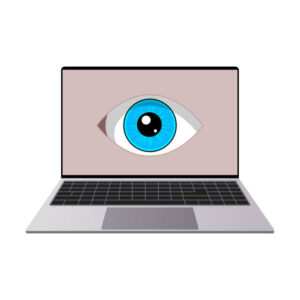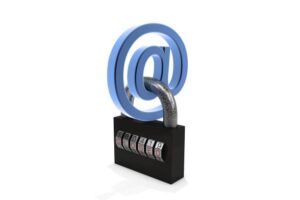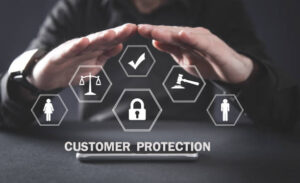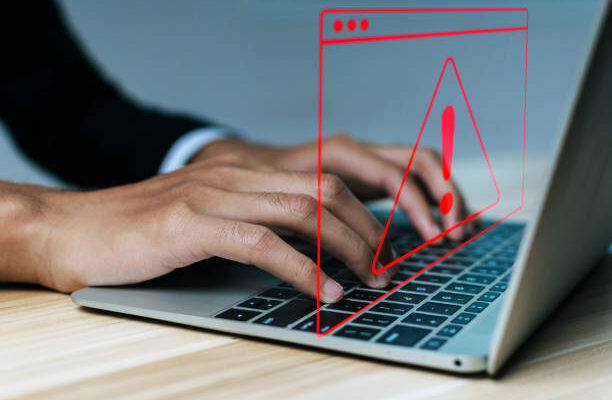The internet has transformed our world in ways that were unimaginable just a few decades ago. It has become an integral part of our daily lives, impacting communication, commerce, education, and entertainment. However, with its immense power and influence, the internet also raises crucial questions about regulation and control. One of the most contentious debates centres around whether or not the government should control the internet.
In this article, we will explore the arguments for and against government control of the internet, analysing the various aspects of this complex issue. The central question is: Can government intervention help ensure the internet is a safe and free space for all, or does it risk infringing upon our rights and stifling innovation? Striking a balance between security and freedom in the digital age is a formidable challenge, and we will examine the arguments from both perspectives.
The Case for Government Control
-
National Security and Cybersecurity
 (Photo from iStock)
(Photo from iStock)
Governments play a crucial role in protecting national security. The internet, with its vast potential for cyberattacks, poses a significant threat. The government’s involvement can help establish standards for cybersecurity and facilitate information sharing among different agencies and private companies. This can lead to a more coordinated defence against cyberattacks.
-
Combatting Online Crime
The internet has also become a haven for various criminal activities, such as cyberbullying, identity theft, and the distribution of illegal content. Government intervention can help law enforcement agencies trace and apprehend criminals who exploit the internet for illegal activities. This control can act as a deterrent for potential wrongdoers and can aid in prosecuting those who engage in illegal online activities.
-
Regulating Harmful Content
The internet is host to a wide range of content, not all of which is beneficial or appropriate. Some argue that government intervention is necessary to protect vulnerable populations from harmful content, such as hate speech, pornography, or extremist ideologies. Regulations can also help curb the spread of misinformation, disinformation, and fake news that can have serious real-world consequences.
-
Ensuring Universal Access
Government control can help ensure that the internet remains accessible to all citizens, regardless of their economic or social status. It can help bridge the digital divide by subsidizing internet access in underserved areas. Specifically, promoting equal opportunities, and ensuring that no one is left behind in the digital age.
-
Protecting Intellectual Property
 (Photo from iStock)
(Photo from iStock)
The internet is a vast marketplace for intellectual property, including music, movies, and software. Government regulation can help protect the rights of content creators and prevent online piracy, ensuring that artists and innovators are fairly compensated for their work.
The Case Against Government Control
-
Freedom of Expression and Information
One of the primary arguments against government control of the internet is the potential infringement on freedom of expression and information. A government that has the authority to control the internet can use this power to censor dissenting voices, stifle criticism, or limit access to information. Furthermore, this can undermine democracy and lead to authoritarian control.
-
Innovation and Creativity
The internet’s rapid growth and innovation are often attributed to its decentralized and open nature. Government control could stifle this innovation by introducing bureaucratic red tape, making it harder for start-ups and small businesses to compete. Overregulation may also discourage the development of new technologies and services, limiting the internet’s potential for economic growth.
-
Privacy Concerns
Government control of the internet can raise significant privacy concerns. Specially, surveillance and data collection can become more pervasive, infringing on individuals’ privacy rights. Further, this erosion of privacy can discourage people from freely expressing themselves online and engaging in open discourse.
-
Potential for Abuse
 (Photo from iStock)
(Photo from iStock)
Government control of the internet can be susceptible to abuse, as it concentrates power in the hands of a few. A government with unchecked authority can use it to target political opponents, suppress minority voices, or manipulate public opinion. Moreover, such abuse undermines the principles of democracy and can lead to human rights violations.
-
International Disputes
In an interconnected world, the internet often transcends national borders. Government control can lead to conflicts between nations over jurisdiction and regulations, potentially undermining international cooperation and diplomacy.
Finding a Balance
The debate over government control of the internet is far from clear-cut. Striking a balance between security and freedom in the digital age is a formidable challenge. So, how can we address the concerns raised by both sides of the argument?
-
Transparency and Accountability
Governments should be transparent about their internet regulations and their reasons for implementing them. Clear guidelines and oversight mechanisms can help prevent abuse and maintain accountability. Citizens should be informed about the extent of government control, and they should have the right to challenge unjust or overreaching regulations.
-
Protecting Fundamental Rights
 (Photo from iStock)
(Photo from iStock)
While governments must address security concerns, they must also respect and protect fundamental rights, such as freedom of expression, privacy, and access to information. Especially, regulations should be designed to strike a balance between these rights and security concerns, and any infringement on these rights should be rigorously scrutinized.
-
International Collaboration
The global nature of the internet calls for international collaboration. Nations should work together to establish common standards for cybersecurity, data protection, and other critical issues. Eventually, this can reduce conflicts and promote a more open and interconnected digital world.
-
Decentralized Regulation
Rather than granting a single government unchecked control over the internet, a more decentralized approach to regulation can be considered. This approach could involve a multi-stakeholder model where various entities, including governments, civil society, and the private sector, work together to develop and implement regulations.
-
Education and Digital Literacy
Promoting digital literacy and education is essential to empower individuals to navigate the online world safely and critically. Informed users are better equipped to protect themselves from online threats, recognize disinformation, and engage in productive digital citizenship.
Conclusion
The question of whether the government should control the internet is a complex and multifaceted one. Balancing national security, privacy, freedom of expression, and economic growth requires careful consideration of the advantages and disadvantages of government intervention. Ultimately, the key is to find a balance that respects individual rights while addressing legitimate security concerns. Evidently, in our rapidly evolving digital age, the pursuit of such balance is an ongoing challenge that demands careful attention from governments, civil society, and individuals alike.




